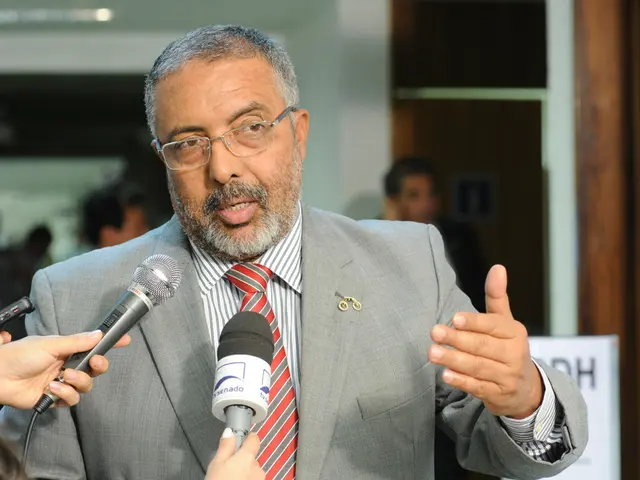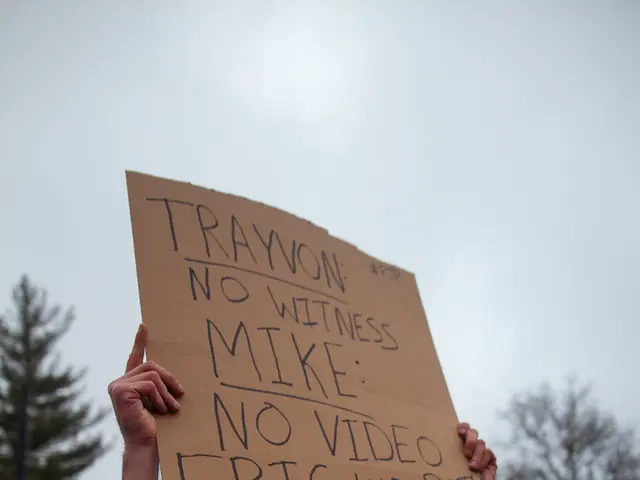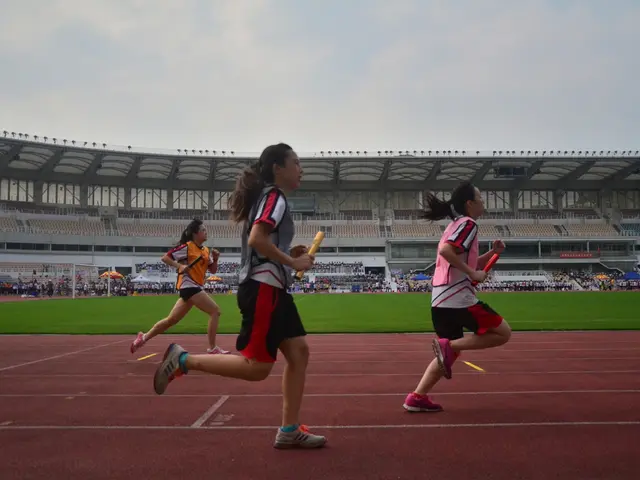International Court of Justice prepares to decide on Sudan's claim accusing the United Arab Emirates of financing Sudanese militia groups.
From the Netherlands' Hague, the World Court is set to decide on Monday. This time, it's all about Sudan's request for emergency measures against the United Arab Emirates (UAE). The underlying issue? Sudan claims the UAE has breached the Genocide Convention by providing arms and funds to the rebel paramilitary Rapid Support Forces (RSF), escalating Sudan's bloody conflict and potentially targeting the Masalit people.
Sudan's Call to ActionIn March, Sudan petitioned the International Court of Justice (ICJ) for a series of orders—provisional measures—including a demand for the UAE to stop any actions leading to the killing and other crimes against the Masalit people.
UAE's CounterclaimThe UAE dismissed Sudan's filing as a publicity stunt. During a hearing last month, the UAE argued that the court had no jurisdiction over the matter. Reem Ketait, a senior official at the UAE's Ministry of Foreign Affairs, stated, "This case is baseless, legally and factually. The UAE is not involved in the war, and this case is yet another attempt by the Sudanese Armed Forces, one of the warring parties, to distract from its own responsibility."
The Genocide Convention and the UAEBoth Sudan and the UAE are signatories to the 1948 Genocide Convention. However, the UAE has a caveat in the treaty, which legal experts suggest may hinder the case's progression.
The Conflict IgnitesSudan plunged into a violent conflict in mid-April 2023 when tensions between its military and paramilitary forces erupted in the capital, Khartoum, before spreading to other regions. Both the RSF and Sudan's military have been accused of atrocities.
The UAE's Alleged RoleThe UAE, a federation of seven sheikhdoms on the Arabian Peninsula and a U.S. ally, has been accused of supplying the RSF with arms, an allegation the UAE has strenuously denied despite evidence to the contrary.
The ICJ's decision on Monday could determine whether the UAE is ordered to take immediate action to prevent further alleged genocide, although the UAE's reservation to part of the treaty casts doubts on the case's progression.
[1] Fadjri, S. (2025). Sudan Accuses UAE of Aiding Militia Linked to Genocide. Al Jazeera.[2] Gantz, D. (2025). Sudan Takes UAE to UN's Top Court Over Genocide Allegations. Associated Press.[3] Mselekwa, J. (2025). Sudan Takes UAE to ICJ over Darfur Genocide Allegations. Africanews.[4] Walker, P. (2025). The Genocide Convention and the UAE's Partial Reservation: Implications for Sudan's Case at the ICJ. International and Comparative Law Quarterly.
- The World Court in The Hague is preparing to decide on Monday regarding Sudan's call for emergency measures against the UAE, with the underlying issue being the UAE's alleged breach of the Genocide Convention by aiding the rebel paramilitary Rapid Support Forces (RSF).
- In March, Sudan filed a petition with the International Court of Justice (ICJ) demanding provisional measures, such as stopping actions that could lead to crimes against the Masalit people, whom the RSF may potentially target.
- However, the UAE dismissed Sudan's filing as a publicity stunt and argued that the court had no jurisdiction over the matter during a hearing last month.
- Both Sudan and the UAE are signatories to the 1948 Genocide Convention, but the UAE's reservation to a part of the treaty may hinder the case's progression, according to legal experts.
- The ongoing conflict in Sudan began in mid-April 2023, prompted by tensions between the military and paramilitary forces that escalated in the capital, Khartoum, before spreading to other regions.
- Amid accusations of atrocities, the UAE has been alleged to have supplied the RSF with arms, which the UAE has vehemently denied, despite evidence to the contrary.
- News outlets such as Al Jazeera, Associated Press, Africanews, and the International and Comparative Law Quarterly have reported extensively on this matter, highlighting the political, crime-and-justice, and general-news implications of this potential genocide case involving Sudan and the UAE.








